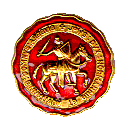
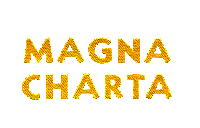
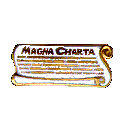



On the 15th of June, 1215, King John met his Barons on the field of Runnemede, the ancient meadow of council. His followers were few as he met more than two thousand Knights and Barons in arms encamped on the field. The Barons had sworn an oath that they would compel the King to confirm their liberties or they would wage war agaist him to the death. Theirs was a holy crusade agaist John to recover the liberties their forefathers had enjoyed and to restore the good old customs violated by an oppressive and mercenary ruler. Their demands had been presented to the King months before for his consideration, and before the day passed he affixed his seal to the original but preliminary draft known as the "Articles of the Barons." The exact terms of the Great Charter itself were decided and engrossed during four subsequent days of negotiation, and it was on the 19th that the great seal was affixed to all copies. These were all dated back to the 15th of June, and duly sealed by the King.
The Great Charter of Liberties has become The Mother of Constitutions! The liberties of half the civilized world are derived from the Magna Charta! It is recognized as the basis of our laws, and of national liberty in general. Long standing customs, called Common Law, had now become written law, among them, no taxation without representation, judgement by peers, and due process of law. Liberty is the keynote of the Charter, to have and to hold, to them and their heirs, for ever! The King is not above the law; the law reigns supreme.

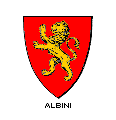 William d'Albini, Lord of Belvior Castle, Leicestershire. d. 1236.
William d'Albini, Lord of Belvior Castle, Leicestershire. d. 1236.
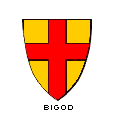 Roger Bigod, Earl of Norfolk (and Suffolk?) d. 1220.
Roger Bigod, Earl of Norfolk (and Suffolk?) d. 1220.
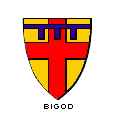 Hugh Bigod, The Earl Norfolk's heir. d. 1225.
Hugh Bigod, The Earl Norfolk's heir. d. 1225.
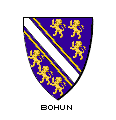 Henry de Bohun, Earl of Hereford. d. 1220.
Henry de Bohun, Earl of Hereford. d. 1220.
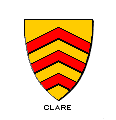 Richard de Clare, Earl of Hertford. d. 1217.
Richard de Clare, Earl of Hertford. d. 1217.
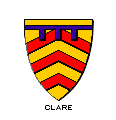 Gilbert de Clare, The Earl of Hertford's heir. d. 1230.
Gilbert de Clare, The Earl of Hertford's heir. d. 1230.
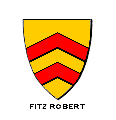 John FitzRobert, Lord of Warkworth Castle, Northumberland. d. 1240.
John FitzRobert, Lord of Warkworth Castle, Northumberland. d. 1240.
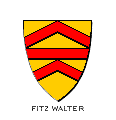 Robert FitzWalter, Lord of Dunmow Castle, Essexshire. d. 1234.
Robert FitzWalter, Lord of Dunmow Castle, Essexshire. d. 1234.
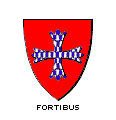 William de Fortibus, Earl of Albemarle. d. 1241. No great-grand children.
William de Fortibus, Earl of Albemarle. d. 1241. No great-grand children.
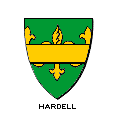 William de Hardell, Mayor of London. d. after 1216. No known issue.
William de Hardell, Mayor of London. d. after 1216. No known issue.
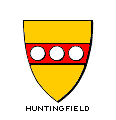 William de Huntingfield, A feudal baron in Suffolk. d. 1220.
William de Huntingfield, A feudal baron in Suffolk. d. 1220.
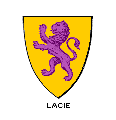 John de Lacie, Lord of Halton Castle, Cheshire. d. 1240.
John de Lacie, Lord of Halton Castle, Cheshire. d. 1240.
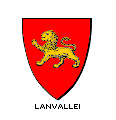 William de Lanvallei, Lord of Stanway Castle, Essex. d. 1217
William de Lanvallei, Lord of Stanway Castle, Essex. d. 1217
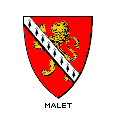 William Mallet, Lord of Curry-Malet, Somersetshire. d. about 1217.
William Mallet, Lord of Curry-Malet, Somersetshire. d. about 1217.
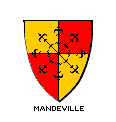 Geoffrey de Mandeville, Earl of Essex and Gloucester. d. 1216. No issue.
Geoffrey de Mandeville, Earl of Essex and Gloucester. d. 1216. No issue.
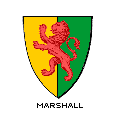 William Marshall, The Earl of Pembroke's heir. d. 1231. No issue. parents
William Marshall, The Earl of Pembroke's heir. d. 1231. No issue. parents
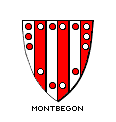 Roger de Montbegon, Lord of Horneby, Lancashire. d. 1226. No Issue.
Roger de Montbegon, Lord of Horneby, Lancashire. d. 1226. No Issue.
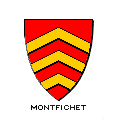 Richard de Montfichet, A feudal baron of Essex? d. after 1258. No issue.
Richard de Montfichet, A feudal baron of Essex? d. after 1258. No issue.
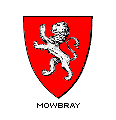 William de Mowbray, Lord of Axholme Castle, Lincolnshire. d. 1223.
William de Mowbray, Lord of Axholme Castle, Lincolnshire. d. 1223.
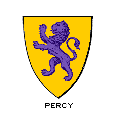 Richard de Percy, A feudal baron of Yorkshire. d. 1244. No issue. parents
Richard de Percy, A feudal baron of Yorkshire. d. 1244. No issue. parents
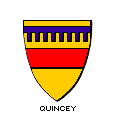 Saire de Quincey, Earl of winchester. d. 1219.
Saire de Quincey, Earl of winchester. d. 1219.
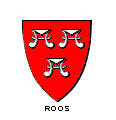 Robert de Roos, Lord of Hamlake Castle, Yorkshire. d. 1226.
Robert de Roos, Lord of Hamlake Castle, Yorkshire. d. 1226.
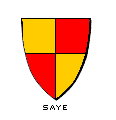 Geoffrey de Saye, A feudal baron in Sussex? d. 1230.
Geoffrey de Saye, A feudal baron in Sussex? d. 1230.
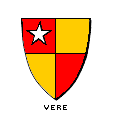 Robert de Vere, Earl of Oxford. d. 1221.
Robert de Vere, Earl of Oxford. d. 1221.
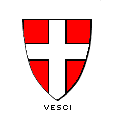 Eustace de Vesci, Lord of Alnwick, Northumberland. d. 1216. dsp.
Eustace de Vesci, Lord of Alnwick, Northumberland. d. 1216. dsp.
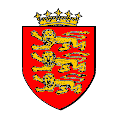 John "Lackland", King of England. d. 1216.
John "Lackland", King of England. d. 1216.
